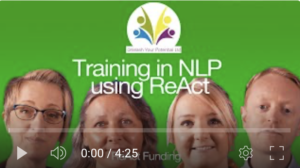One thing you can guarantee with the world of business is that it’s constantly changing. Whether  it’s mergers and acquisitions, downsizing, rationalisation, selling part or whole business units – big business is always changing it’s organisational structures, looking to save costs or increase profits – that’s what organisations do. It’s happening in all sectors – even some councils are looking at it as a cost saving exercise. It always been like this. If however you find this news unsettling, you’re not on your own.
it’s mergers and acquisitions, downsizing, rationalisation, selling part or whole business units – big business is always changing it’s organisational structures, looking to save costs or increase profits – that’s what organisations do. It’s happening in all sectors – even some councils are looking at it as a cost saving exercise. It always been like this. If however you find this news unsettling, you’re not on your own.
Redundancies though are fairly common these days. Here is South Wales back in January 2024 Tata Steel announced the possible loss of 2,800 jobs in the UK (approx. 750 jobs in Wales). Recently the banks have also been restructuring – with changes in Lloyds, Nationwide Barclays, TSB and others resulting in some roles moving, being changed or being lost altogether. In the last week alone Sainsburys, BAM, Next, OVO, and others have announced small scale redundancies in various parts of the UK.
I used to work in HR (Human Resources) and across my almost 15 years in various HR roles I was involved in managing change. As a seasoned HR professional, supporting and delivering the people elements of large scale organisational change was the norm for me (from store closures, to TUPE transfers, redundancy programs, restructures – I’ve pretty much done it all). Inevitably when change comes around, people naturally wonder what will the impact be on me? Staff that are not directly impacted start to feel unsettled and a great Line Manager will have great communication skills – communication is essential in these situations – the quicker people are given clarity and an understanding the better. People what to see what the new organisational structure will be, they will want to talk to their line manager about this, understand if they’re impacts and if they are will want to know what support is available to help them through this life transition.
*STOP PRESS* – did you know that we run in-house courses for organisations equipping Managers, Leaders and In-House Coaches in practical effective communication and influencing skills? Helping Leaders understand others better? Understanding how to reframe and help people see things differently? – one person said last week she’d learn’t more practical things she could actually use in two day with me than she had in 5 weeks on another course! – get in touch to get a quote!
Change is a personal thing … the one thing we all want is hope & it’s ok to feel what you feel
At the heart of business change is people and change is experienced as a very personal thing. Periods of change can create uncertainty. Some people particularly struggle in times of flux. They seek clarity and understanding. Some people feel scared by the lack of control they may perceive they have and once the decision is made and there is a clear plan in place people start to relax and a. feeling of hope settles in. Everyone is different though. The are a host of very understandable emotions that people experience. Some people will feel disbelief, surprise, anger, or perhaps worry (for themselves and/or their families). While some people will sit in this space for quite some time and maybe need some support to process these emotions, others get past them faster. Perhaps after the initial shock they see this as an opportunity, it’s possibly exciting … AND with some funds from their employer they had off to do something they’ve always wanted to do or get that new role. I saw a post on LinkedIn just yesterday saying someone had been told his job was at risk, and this had given him the push to look outside the organisation and he wondered if perhaps he could get an even better job more aligned to his values and maybe this had been the push he needed …..
Since the pandemic my view is that many of us have become more sensitive to change, especially when it’s not of our own doing. I know I have, I have to use my mindset to remind myself this isn’t like the pandemic. Change doesn’t have to be catastrophic. Since doing my Certified NLP Practitioner course I noticed my mindset in all areas of my life changed for the better – my outlook on life changed. We all want hope – hope for a better day, hope that things will work out well, hope that those awful things we image in our mind won’t materialise … what makes the difference? …. mindset, mindset, mindset!
“I’ve had a lot of worries in my life, most of which never happened.”
―
Redundancy is a life transitional – if you choose to see it like this …
So, when you get told you are at risk of redundancy, or there is an organisational structure change coming over the hill towards you – the first thing to do is recognise you’re not going to be unemployed tomorrow – my phrase for this stage is ‘… and breath’ – refrain from jumping to conclusions, just pause for a moment. In a redundancy situation, a consultation period is where your employer is telling you that there are some changes coming, that could lead to you possibly being made redundant (if it happens, you’ll get your notice period and if you’ve got the qualifying service, a redundancy payment).
For me, once the initial shock subsided after a few hours, I viewed redundancy nothing more than a transition period. It’s a period of time you can use to reconsider what you want and what’s next for you – when looked at like this it can be empowering. Most people overlook this possibility and take the first job they find that’s as close as possible to what they’ve historically done – the behaviour often driven by fear.
Take some time to consider what YOU want to do next … perhaps go for a long walk in nature and consider: if you could do anything you wanted, what would you do? – now could be your chance to do just that, if you really want to …with some financial support from your employer (and if you’re in Wales a government funded £1,500 you will probably also qualify for the £1,500 training grant called ReAct funding – find out more here via the link).
4 Questions that will change how you evaluate what to do next …
Instead of doing what many people do (automatically thinking of short term timeframes and panic) get a blank piece of paper and start jotting down ideas about what you might want to do choose to do next (however crazy allow yourself to dream). Consider what you would love to be doing in 2 years time? 5 years time? 10 years time? – what’s the longer term goal here (NLP has some great goal setting tips – check out this deep dive Podcast episode I did you help you – you can watch it on YouTube here or listen on your fav podcast platform if you prefer). Then sit back and look at what you’ve got, consider each idea. Pro’s and Con’s is the traditional way of doing this, but what if there was a set of questions that could help you even more effectively?
Let me give you an example of evaluating whether to take a specific job you’ve been offered using something from NLP called Cartesian Logic. 4 simple but very powerful questions for evaluating anything …. but here we’ll use it to consider a job offer as an example:
- What would happen if you did take it?
- What wouldn’t happen if you did take it?
- What would happen if you didn’t take it?
- What wouldn’t happen if you didn’t take it?
I’d also encourage you to take time to review the skills you have (many of which will be transferable if you packaged them up differently) – if you’re struggling with this, ask someone to help you – a Coach would be the perfect option here as they have no hidden agenda and just want to help you make the right decision for you. I often spend my time as a Coach helping people see things different and all of a sudden they’re rocking and rolling with a new CV or if they’re running their own business a new set of USPs that help them share how awesome they are!
*STOP PRESS* – did you know that I run a Coaching and Mentoring business offering support one to one for people going through life transitions. We love offering outplacement support to people and helping them dust themselves off and get that fire in their belly for their next opportunity. Get in touch to find out if we can help you.
2 top tips for handling emotions: try out this practical exercise …
Be mindful of your own emotions and consider if they’re helping you or wasting your precious energy. In NLP we know how to manage our state – our feelings (particularly through a process called Anchoring -find out more from my YouTube Video here) – and can easily change the way we feel when we want to.
Try this as a quick exercise:
close your eyes, remember a time a specific time when you were really {insert emotion you want to feel – like calm, confidence, certainty, or even excitement, fun etc}. With your eyes closed go back to that time and float inside your body, see what you saw, hear what you heard and really feel those feelings. You could consider what was going on – where were you, who were you with, what were you doing – remember it as if you were there now – what did you see, hear, feel, smell, taste etc. Really re-absorb yourself in that experience – that’ll have changed how you feel in an instant, right?
My second tip with emotions is: be mindful of the emotions you are surrounded by – look at the 5 people you spend the most time with – are their emotions helping you or dragging you down. Spend time with people that are optimistic, who see possibility, who want to take control of what they can, who want to be pro-active and are looking forward at the possibility of what could be (even if you’re feeling pretty down in the dumps, those people will be there if you look for them).
I can be that beacon of hope for you … great things can and do happen ….
Every time I was redundant I went onto better jobs, then eventually my own business. I can be that beacon of hope for you … great things can and do happen after a life transition such as Redundancy. I took all the support offered (such as outplacement and funding/grants). For me, it’s all about choosing your mindset – and seeing this as the start of something awesome – believe this and you are over half way there!
____________________________________________________________________
Are you currently at risk of redundancy or recently been made redundant and live in Wales? – then check out ReAct Funding
If you answered yes to these two questions, you may well be eligible for ReAct funding. A £1,500 training grant – check out our ReAct web page to find out more about the ReAct fund. We’re delighted to advise you that we take ReAct funding as payment for any of our Certified NLP Practitioner or Certified Coach Courses – so make sure you check out our web page for more details and get in touch for the details of how to apply ….
Want to hear what previously delegates think of using their ReAct funding with us – check out this video:
____________________________________________________________________
Laura is passionate about helping people realise their potential, and achieve the results they deserve. She believes, if you change your thinking, you can change your results. You can link up with us via our Facebook page, follow us on Twitter or link up with Laura via LinkedIn. If you have any questions, email us at [email protected].
We offer 1-2-1 transition coaching for people affected by change, and can provide tailored employability courses for staff such as skills audits, CV writing, successful job searching, interview skills (including our tips that make the difference to getting the job you want) etc. We are also able to offer Leadership and Management training focuses on Effective Communication, Influencing and understanding other better. We also offer presentation training courses too! Get in touch to find out more!



